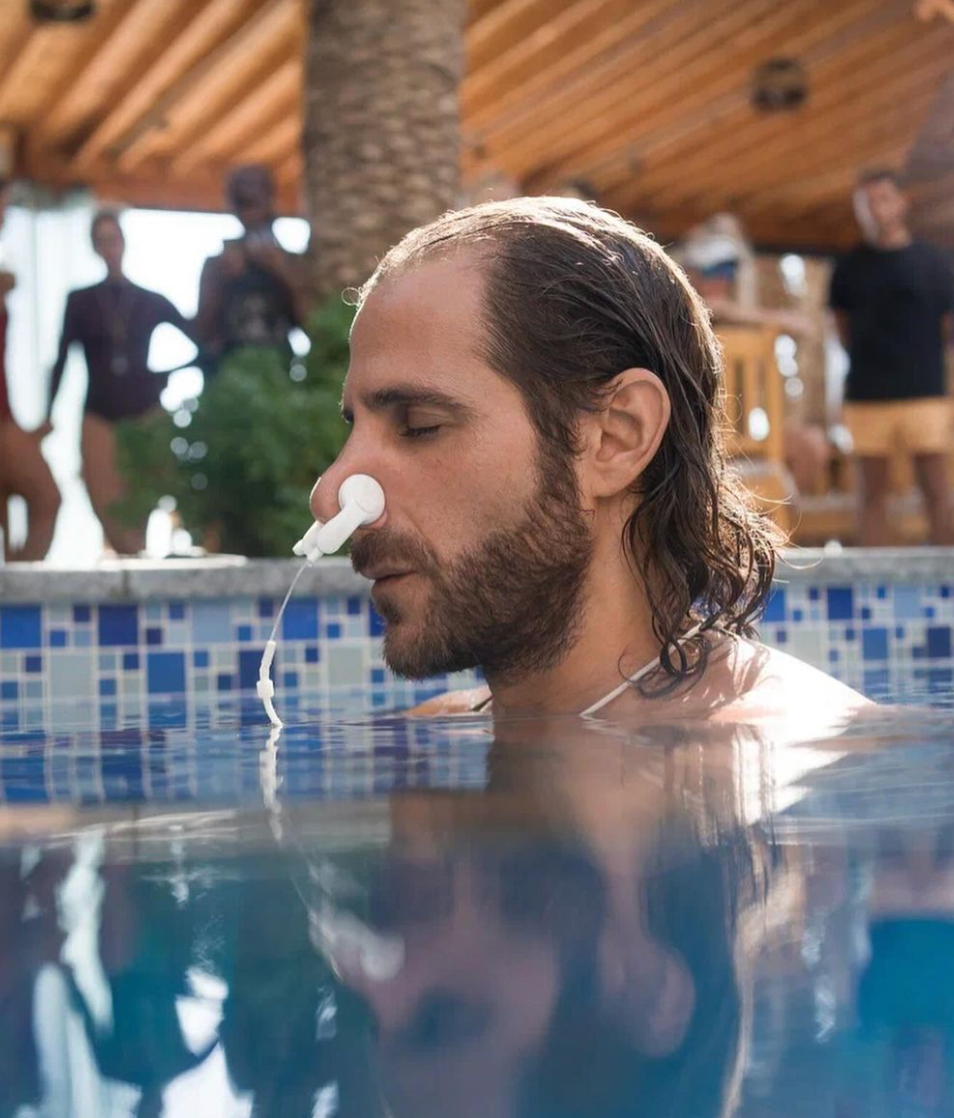Aaron Fisher’s mental health, like that of many people around the world, suffered during the Covid-19 pandemic. “I started going through really bad depression at that time,” the Canadian says before a trip to Mexico changed everything.
In the Yucatan Peninsula, Fisher discovered freediving – a sport where people dive underwater while holding their breath. After completing his first course, Fisher was hooked. “I would just dive every single day and hold my breath every single day in the cenote – and I just loved it,” he explains.
“What I loved about it was taking that breath, and once you’re in the water, it’s quiet,” he adds. “That peace, that absolute quietness around you. Hearing things you haven’t heard inside yourself, connecting to parts of yourself, that awareness within.”
Fast forward to the present day, and freediving has become part of Fisher’s identity. He now focuses on static freediving (holding his breath in a body of water) and has set his sights on breaking national records. Fisher also firmly advocates for the power of freediving and its potential connections to improved mental wellness.

This narrative is not unique within the freediving community. Many athletes and recreational divers say they’ve undergone transformative journeys while discovering the sport. Most believe there’s a unique combination of attributes tied to freediving that can unlock deeply therapeutic benefits.
Freediving’s emergence into the mainstream
Unlike scuba divers, who rely on breathing apparatus and oxygen tanks, freedivers take one deep breath at the surface before descending into the water. While the practice is traced to ancient communities like the Bajau tribe, which would dive for food, it’s only emerged as a sport and recreational hobby within the last few decades.
In popular culture, like social media, freediving is often depicted through stunning images of divers exploring reefs, marine life and open water. Aided with long, slender fins and free of cumbersome equipment, recreational freediving is precisely what its name suggests: freeing.
However, it also comes with risks. Seen by some as an “extreme sport”, proper training and safety measures are essential to avoid…
Click Here to Read the Full Original Article at The Independent Travel…
